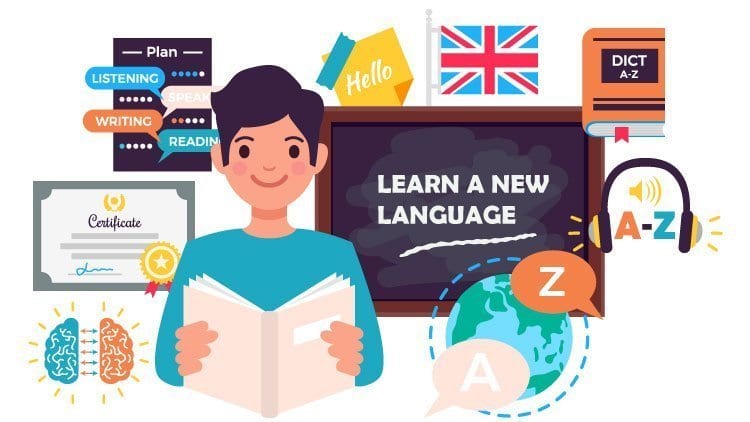New Language Skill: Unlocking Opportunities and Expanding Horizons
In today’s interconnected world, mastering a new language is more than just a hobby or academic pursuit; it’s a powerful tool that can unlock countless personal and professional opportunities. With the rise of globalization and digital communication, the ability to speak multiple languages has become a key skill for success in various fields. This article delves into the benefits of acquiring a new language skill, exploring how it can transform your life, enhance your career, and open doors to new cultural experiences.
For more information: Spanischunterricht in Havanna, Kuba
1. Boosting Cognitive Abilities
Learning a new language goes beyond memorizing vocabulary and grammar rules. It stimulates the brain and improves cognitive functions, such as problem-solving, multitasking, and memory. Studies have shown that bilingual or multilingual individuals tend to have sharper mental faculties and may even delay the onset of cognitive decline in older age. The mental workout involved in switching between languages trains the brain to think more flexibly and creatively, which can be beneficial in everyday life and professional environments.
2. Enhancing Career Prospects
In today’s global job market, language skills are highly sought after by employers. Proficiency in a second or third language can set you apart from other candidates, especially in industries like international business, tourism, diplomacy, and technology. Multilingual employees are often more adaptable, as they can communicate with clients or colleagues from different cultural backgrounds, and they can help businesses expand into new markets. Whether you’re negotiating deals, traveling for work, or managing teams across borders, knowing another language makes you a valuable asset.
3. Fostering Cross-Cultural Understanding
Language is more than a tool for communication; it’s also a gateway to understanding different cultures. By learning a new language, you gain insight into the customs, values, and traditions of the people who speak it. This can foster greater empathy, tolerance, and appreciation for diversity. In an increasingly multicultural world, being able to connect with people from various backgrounds can help build stronger relationships, both personally and professionally. It allows you to see the world through different perspectives and enriches your global outlook.
4. Improving Travel Experiences
Traveling to a foreign country becomes a more immersive and enriching experience when you can speak the local language. Instead of relying on translations or guides, you can engage directly with locals, navigate unfamiliar places with ease, and fully appreciate the culture. Whether you’re ordering food, asking for directions, or engaging in meaningful conversations, speaking the local language can transform your travel experience. It allows for deeper connections with the people you meet and helps you avoid common tourist pitfalls, leading to more authentic and rewarding adventures.
5. Expanding Social Networks
Language learning opens doors to new friendships and communities. Online language learning platforms, language exchange programs, and multicultural events provide opportunities to connect with others who share your passion for communication. Engaging with native speakers or fellow learners can help build lasting relationships, whether online or in person. Social media and language apps make it easier than ever to practice and connect with people worldwide, broadening your social and professional networks.
6. Building Confidence and Self-Discipline
Mastering a new language is a challenging and rewarding journey. It requires dedication, consistency, and practice. As you progress and overcome obstacles, your confidence grows, and you develop greater self-discipline. The sense of accomplishment that comes from successfully conversing in a new language can boost your self-esteem, motivating you to tackle other personal and professional challenges. Moreover, the skills you develop during this process—patience, perseverance, and adaptability—are transferable to other areas of life.
7. Utilizing Technology for Language Learning
The digital age has revolutionized language learning. With the abundance of apps, online courses, podcasts, and videos, learning a new language has never been more accessible or convenient. Whether you prefer traditional classroom settings or self-paced learning, there are countless resources available to suit your style. Popular apps like Duolingo, Babbel, and Rosetta Stone provide interactive and engaging lessons that can fit into your daily routine, allowing you to learn at your own pace. Additionally, technology offers real-time translation tools, virtual tutors, and language forums to practice and perfect your skills.
8. Conclusion: A Skill for Life
Learning a new language is a lifelong skill that offers endless benefits. From enhancing your cognitive abilities and boosting career prospects to fostering cultural understanding and improving travel experiences, the impact of language learning extends far beyond the classroom. In an increasingly globalized world, the ability to communicate across languages is a valuable asset that can transform your personal and professional life. Whether you’re looking to advance your career, broaden your horizons, or simply connect with people from different backgrounds, acquiring a new language skill is a powerful and enriching journey that opens doors to a world of possibilities.






